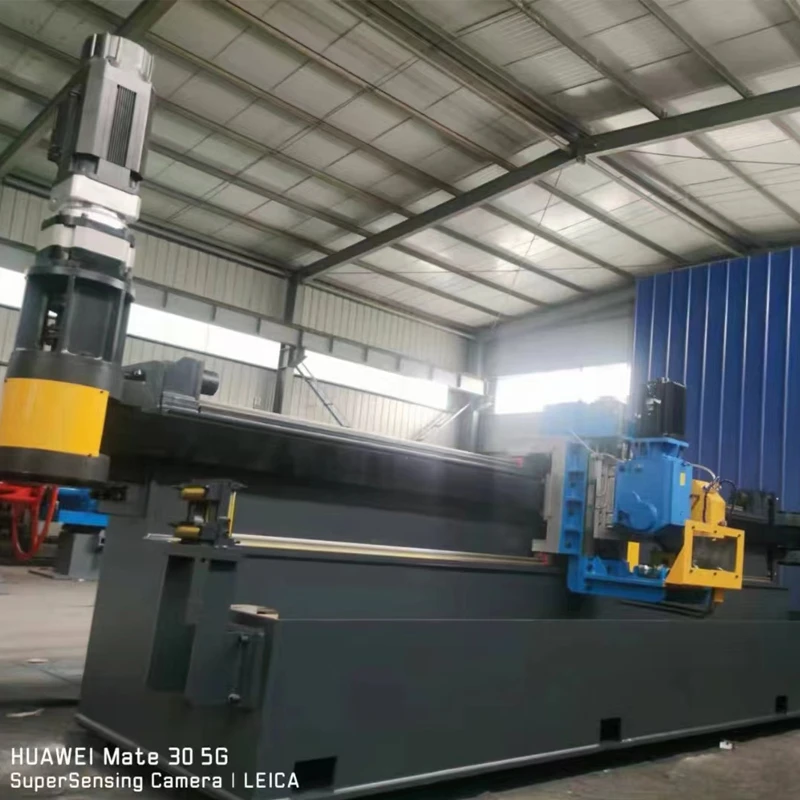Cement Pipe Production Machine for Efficient Manufacturing Solutions
The Process of Cement Pipe Making An Overview of the Machinery
Cement pipes are essential components in construction and civil engineering, used primarily for drainage, sewerage, and other utility pipelines. The process of manufacturing these pipes has evolved significantly over the years, leading to the development of specialized machines that streamline production. This article explores the cement pipe making machine, its components, and the benefits it brings to the manufacturing process.
What is a Cement Pipe Making Machine?
A cement pipe making machine is an industrial apparatus designed to produce reinforced concrete pipes of various diameters and lengths. These machines automate several processes involved in pipe production, including mixing, molding, and curing, thereby increasing efficiency and ensuring consistent quality in output. The primary objective of these machines is to create pipes that possess high strength, durability, and resistance to external environmental factors.
Key Components of Cement Pipe Making Machines
1. Mixing Unit This is where the raw materials, such as cement, aggregate, and water, are combined to create a homogeneous mixture. Advanced cement pipe making machines feature automated mixers that ensure the right proportions and thorough mixing, which is crucial for the quality of the end product.
2. Molding System The molding system shapes the mixed concrete into pipes. There are several molding techniques employed, including centrifugal casting, vibratory casting, and extrusion. Each method has its unique advantages; for instance, centrifugal casting is known for its ability to produce high-density pipes with excellent structural integrity.
3. Curing Chamber After the pipes are molded, they need to cure to gain strength and durability. Curing chambers are designed to maintain optimal temperature and humidity levels to facilitate the curing process. This stage is critical as it determines the overall quality and longevity of the pipes.
4. Cutting and Finishing Unit Once cured, the pipes are cut to the desired length and undergo surface finishing processes. This may include grinding, polishing, or applying protective coatings to enhance durability and aesthetic appeal.
cement pipe making machine

5. Control Panel Modern cement pipe making machines come equipped with advanced control panels that allow operators to monitor and adjust various parameters throughout the production process. Automation improves precision and reduces human error, further ensuring the quality of the pipes.
Advantages of Using Cement Pipe Making Machines
1. Increased Productivity Automation and streamlined processes enable manufacturers to produce a larger volume of pipes in a shorter timeframe compared to traditional methods. This is vital in meeting the growing demand for construction materials.
2. Consistent Quality The use of machines ensures that each batch of pipes is produced under the same conditions, leading to consistent quality in terms of strength and durability. This reliability is crucial for infrastructure projects that depend on the performance of these pipes.
3. Cost Efficiency Although the initial investment in machinery can be significant, cement pipe making machines reduce labor costs and material waste in the long run. Automated processes often lead to optimized resource usage, further decreasing production costs.
4. Versatility Many cement pipe making machines are designed to produce a variety of pipe sizes and types, allowing manufacturers to cater to different market needs. This flexibility makes it easier to adapt to changing demands in the construction industry.
Conclusion
The integration of cement pipe making machines into the manufacturing process revolutionizes the production of concrete pipes. By enhancing efficiency, ensuring quality, and reducing costs, these machines play a crucial role in meeting the infrastructural demands of modern society. As technology continues to advance, we can expect even more innovations in the manufacturing processes for cement products, further shaping the future of construction and civil engineering. Whether for drainage systems or housing projects, the impact of cement pipe making machines is undeniable, making them a vital investment for manufacturers in the industry.
-
High Frequency Straight Seam Welded Pipe Production Line-BzZhou Xinghua Machinery Equipment Manufacturing Co., LTD.|Precision Welding, High EfficiencyNewsJul.30,2025
-
High Frequency Straight Seam Welded Pipe Production Line|BzZhou Xinghua|Precision Welding&EfficiencyNewsJul.30,2025
-
High Frequency Straight Seam Welded Pipe Production Line - BzZhou Xinghua|Precision Engineering&EfficiencyNewsJul.30,2025
-
High-Frequency Straight Seam Welded Pipe Production Line-BzZhou Xinghua Machinery Equipment Manufacturing Co., LTD.NewsJul.30,2025
-
High-Frequency Straight Seam Welded Pipe Production Line-BzZhou Xinghua Machinery Equipment Manufacturing Co., LTD.|Precision Manufacturing, High EfficiencyNewsJul.30,2025
-
High Frequency Straight Seam Welded Pipe Production Line-BzZhou Xinghua Machinery Equipment Manufacturing Co., LTD.|Precision Steel Pipe Manufacturing&Industrial EfficiencyNewsJul.29,2025


